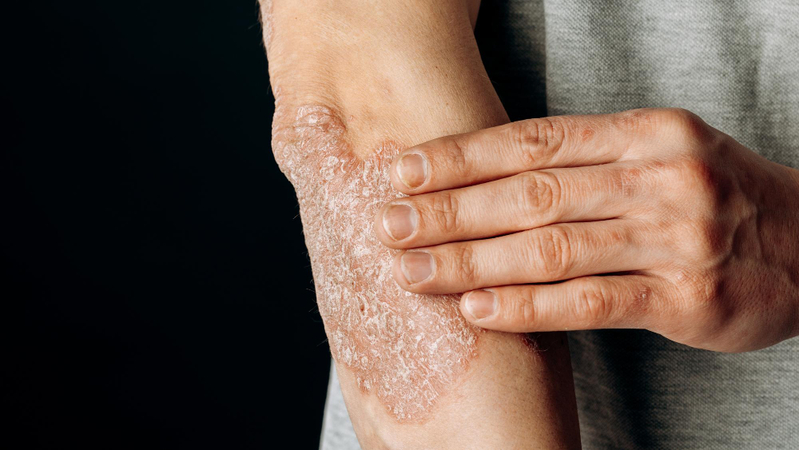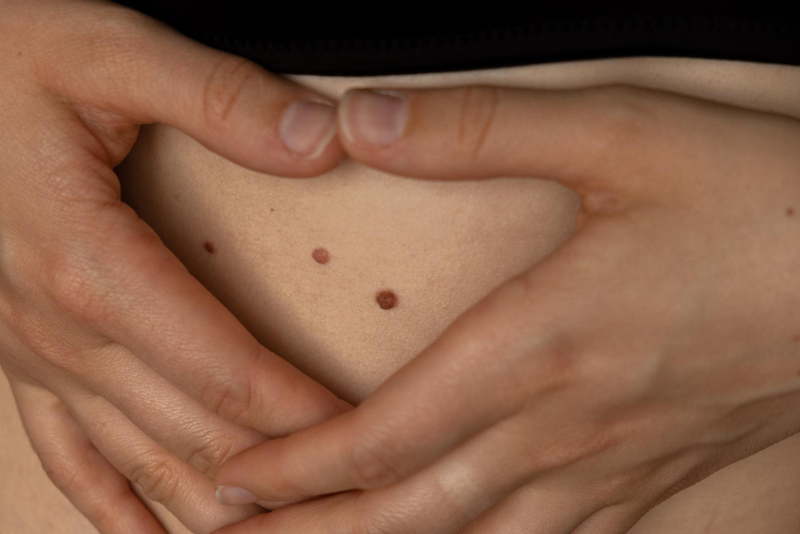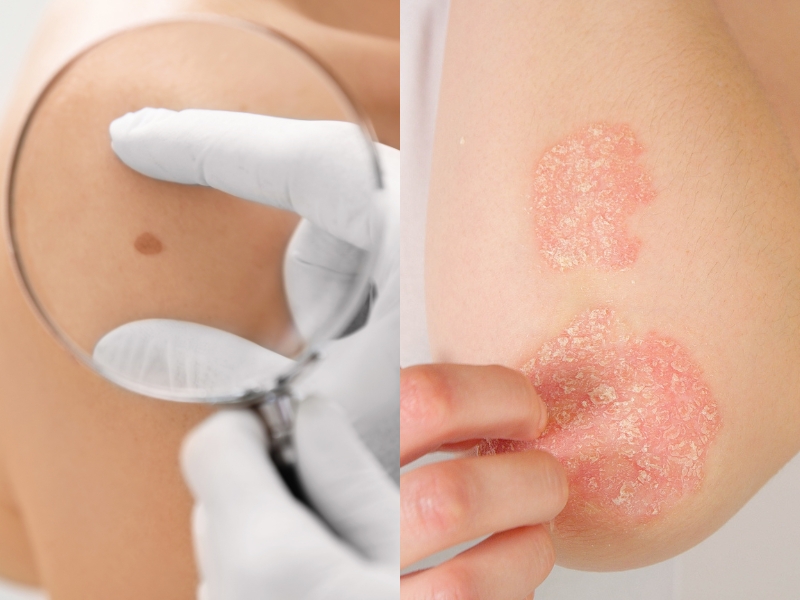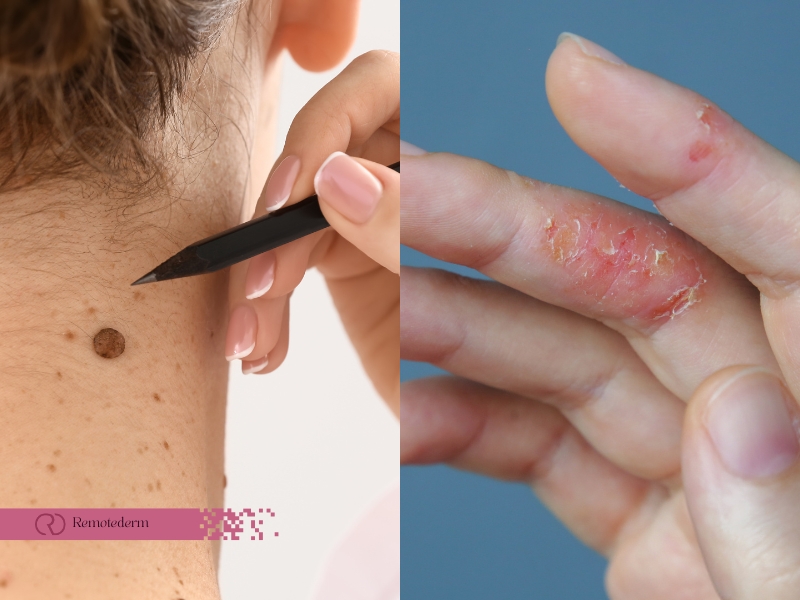Skin conditions such as eczema vs. skin cancer can be very alarming, but they are totally different in terms of causes, symptoms, and treatments. A proper knowledge of these differences helps to control your health. This guide will expose you to how to identify both diseases and when to see a dermatologist, especially if you are in Canada.
What is Eczema?
Eczema is a long-standing skin condition mainly characterized by inflamed skin, itchiness, and rashes. Though at any age is possible, eczema is more prevalent in babies and the young. Distinct types of eczema exist, but atopic dermatitis is the most widely encountered.
Common Symptoms of Eczema
The common signs of eczema that include red, itchy patches of skin, dry and scaly areas, cracks, and rough patches are the most common ones. Affected areas may thicken over time due to a sore feeling caused by excessive scratching. The causes of the crises include allergens, irritants, stress, or dry weather. Eczema is not life-threatening but it can look like a serious disease. If left untreated, it can become severely uncomfortable and the scratching may lead to infections.

Eczema Triggers
Stress, cold or dry air, some soaps, and food, or allergens are usual triggers of eczema. If you’re struggling with chronic eczema, get online dermatologist consultation to identify the appropriate treatment for your skin type.
What is Skin Cancer?
Skin cancer happens when some cells become abnormal and start growing out of control, which is mainly due to long-term exposure to UV radiation. The types are basal cell carcinoma, squamous cell carcinoma, and the more dangerous melanoma, which may spread to other parts of the body.
Common Symptoms of Skin Cancer
Skin cancer common symptoms are new or changing moles or spots on the skin sores that don’t heal raised rough or scaly lesions and loss of blood or pus from the lesions. Some dark patches or streaks may appear under the nails, especially in the case of melanoma. Skin cancer is not like eczema because it can lead to death in case of no early diagnosis and treatment. Early detection is key, and it is advisable to visit a dermatologist for any suspicious growths.

Difference Between Eczema and Skin Cancer
Though eczema and skin cancer may seem like the same thing to a person who does not have the medical knowledge, they are so different and the distinction between them is quite evident which helps in the identification of each disease. The main differences between skin cancer vs eczema are the following:
- Appearance: Eczema causes dry, scaly patches, while skin cancer often appears as changing moles or lesions.
- Itchiness: Eczema is usually itchy, but skin cancer is rarely itchy early on.
- Healing: Eczema improves with treatment; cancer wounds worsen and don’t heal.
- Locations: Eczema typically affects flexural areas, while skin cancer appears in sun-exposed regions like the face, arms, and legs.

When to See a Dermatologist
Eczema can be a chronic yet easily treatable condition, however, skin cancer is a different story as it requires instant medical help. If you see any of the following, go see a dermatologist as soon as possible:
- A mole or spot that has different size, shape or color than usual
- Any sore that has not healed after a couple of weeks
- Painful or bleeding spots on the skin
- Dry and scaly patches on your body that have no apparent reasons and do not get better with eczema treatment
In case you’re unsure of your diagnosis with whether you have mild eczema or a more serious condition, an eczema online dermatologist is a very accessible approach to get medical advice from a professional.
Treatment Options for Eczema vs. Skin Cancer
Eczema and skin cancer require different treatments due to their distinct nature. Eczema focuses on symptom management, while skin cancer treatments aim to remove or control malignancy.
Eczema Treatment
Daily applications of moistening agents are helpful to the management of dryness and the prevention of the crisis. All the topical steroids they have handy will take care of both inflammation and itch. Triggers like allergens and harsh soaps must be avoided for successful treatment. For the most part, the prerequisites for medications like antihistamines or immunosuppressants will apply.
Skin Cancer Treatment
The surgical approach is the most common treatment for almost all types of skin cancer. The method of radiation therapy may also be used for cases when the surgery isn’t feasible. For the initial stage of skin cancer, topical remedies can be effective. In advanced melanoma, if chemotherapy isn’t administered, it may be necessary to use minimal cancer cell spread.
Final Thoughts
It is very important to recognize the difference between eczema vs skin cancer to maintain the health of your skin. Eczema is a situation that can be uncomfortable, but it is also manageable. Nonetheless, skin cancer is definitely the more dangerous one and calls for immediate medical treatment. The regular dermatology check-ups and self-examinations—especially if you live in Canada—can help in finding the potential issues early. If you are ever in doubt about a skin condition, do not be afraid to see a dermatologist.
FAQs
Can eczema become skin cancer?
No, eczema does not develop into skin cancer. However, continuous irritations and inflammation that results in skin damage, can make it more likely to develop infections or complications.
For how long should I examine my skin to see if there is skin cancer?
It’s good to conduct a routine monthly skin examination for any new or moles that develop. If you live in Canada, it’s advisable to book an annual dermatologist appointment as well.
Can food allergies be behind triggering eczema flare-ups?
Yes, food allergens are among the causes of eczema in a good number of people. The foods common for this are dairy, eggs, and nuts.
Does using sunscreen help prevent eczema flare-ups?
Sunscreen is mainly used for protection against UV rays, however, it is also helpful for sensitive skin to protect the skin from irritation which is sometimes caused by sun exposure, thus suffering from eczema flare-ups.
